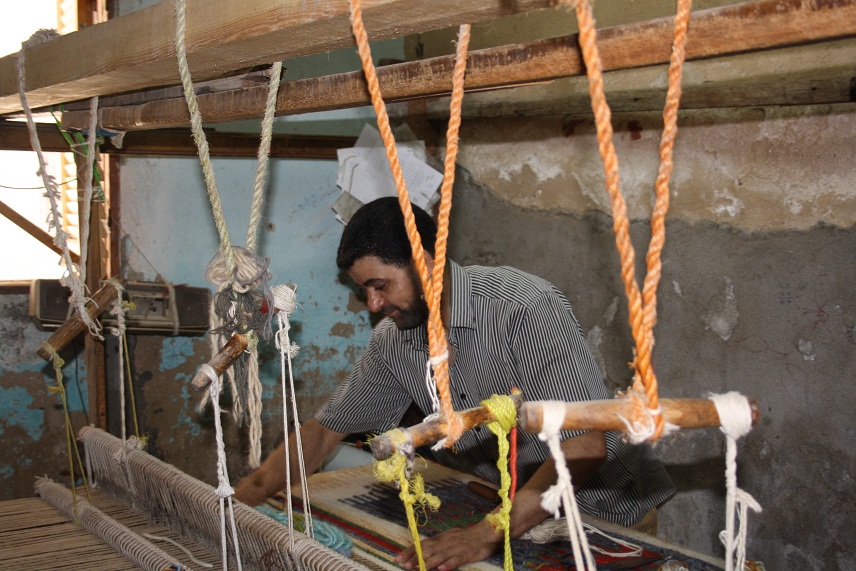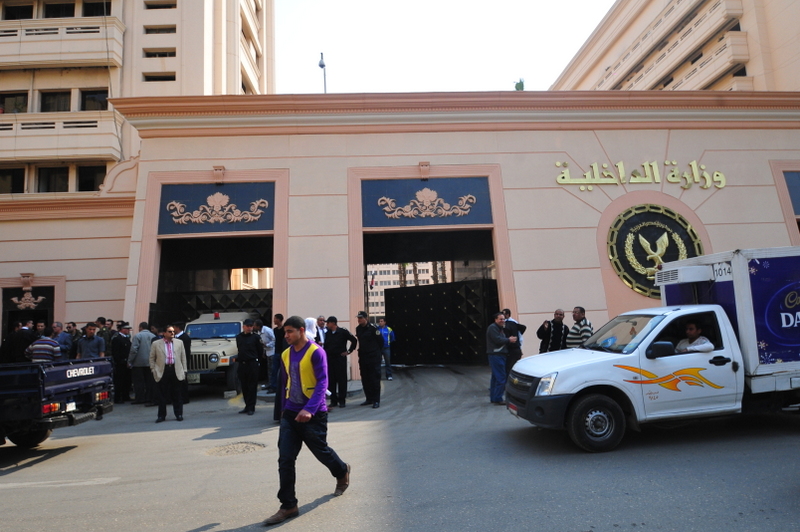
(Photo from facebook)
Menna Khalil, a local jewellery designer, walks into the room with a dress that belongs to a different city. Her belt’s embroidery is a reflection of several old Palestinian ladies sewing their hearts out, spending the day conveying their smiles into red, blue and yellow threads.
Meanwhile, her rings have travelled through time to remind us of the long lost Granada. While her necklace captures the words of a loving husband, who lost a soul-mate and spiritual guide, “Oudy Ya Dehkatha” (dear her smile please come back).
A couple of months ago, Khalil attended the funeral of her mentor, Radwa Ashour, and just as she was grieving the loss of a teacher and a literary idol, the idea of immortalising this national treasure by the means of her art, jewellery, became one of her most important projects.
“Radwa Ashour is a well-known writer, critic and university professor. People think that I am only inspired by a writer, however it is not like this at all,” Khalil explained. “She is my mentor, my idol. She is the first person who opened my eyes truly to the concept of ideology. She was one of my professors in college in 2006.”
Khalil originally studied English Literature at Ain Shams University, where she meet Ashour for the first time. Even though Khalil has a true gypsy soul that takes her from one city to another, she still returns to nature where she finally finds peace. Ashour’s early influence on Khalil brought her back to the academic life after nearly 10 years away.
“With the start of 2013, I decided to purse my academic life. I went back to Ain Shams University to find that I was lucky enough to be instructed by Dr Radwa again,” said Khalil. “She opened my eyes once again; revisiting Dr Radwa is an experience. I first met her as a 19-year-old kid, then I met her again as a 28-year-old woman who has travelled a lot and been through a lot. She changed me again; this woman has a power to transform people, you cannot imagine.”

(Photo from facebook)
Khalil’s fascination with Ashour was not interrupted by her death a couple of months ago. On the contrary, it grew bigger that she found herself obliged to take this feeling of fondness and share it with the world.
“About Radwa Ashour” is the artist’s latest masterpiece and the closest to her heart. The jewellery collection does not just represent Ashour; it manifests all the personal bonds the two ladies shared and gives Ashour’s word a new portal.
While the author wrote seven novels, “The Granada Trilogy” and “The Woman of Tantora” are the most famous. The two novels presented two strong female characters that suffered from loss; while Granada’s Mariama witnessed the destruction of her home town, Rokaya saw her brothers and father getting killed by the Israeli occupation in 1948.
The collection is an artistic sequel to the two novels. The treasure ring is a smaller imaginary replica of Mariama’s jewellery chest, which opens to find a photo of Ashour and her life’s main purpose, resistance. Meanwhile, the door necklace is how Khalil imagined Granada’s authentic architecture. This piece can also be opened to find one of Ashour’s quotes.
“I wanted to create pieces that could be opened and closed with hidden message because that is Radwa Ashour’s essence, the messages and the legacy that she left behind, she was the symbol of hope,” said Khalil.
On the other hand, “Rokaya”, “To Be Repeated”, “The Bracelet”, and many more are what a character like the Palestinian Rokaya could have worn. The items are all made of Palestinian embroidery and genuine leather.

(Photo from facebook)
All of the jewellery was handmade by Khalil in one of the local workshops in Khan El-Khalily. As for the materials, the designer made sure to keep them both precious and affordable so she mixed silver and gold-plated brass with Quarts, Labrodite, Lapis, Ruby, Garnet and many more.
The use of fabrics and leather is something that Khalil has never done before. However, for this collection the designer wanted to do more than the usual jewellery as she added two dresses and a pair of shoes.
“The feedback post the launching is great, some people brought the novels to know who Radwa Ashour is; while others, who know and love her, cried. I also received several orders from Arab and foreign countries that wanted Radwa Ashour,” said Khalil.
Khalil believes that the legend would have loved this collection. Next to Ashour’s feedback, her son Mured El-Barghothy’s opinion is the most important to her as she currently waits for him to come back to Cairo.
“I think she would have loved it, I once gave her a birthday gift from my previous pharaonic collection and even though she does not accept presents she wore mine because I told her that I personally hand made it and that I love giving gifts to my loved ones; so she wore it and told me that it looked very good and that she loves it,” said Khalil.



